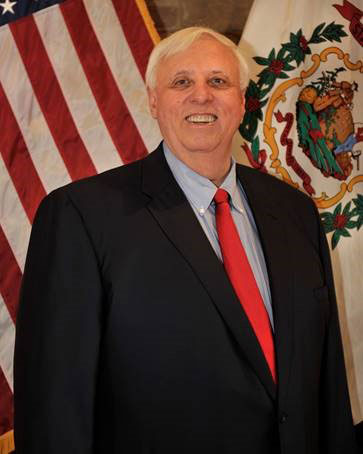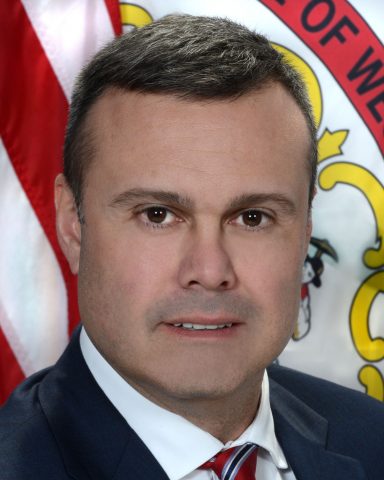The flood mud could be measured in feet in parts of Clendenin. Shauna Johnson/WVMetroNews.com
By: Brad McElhinny | Posted: May 24, 2018 at 5:07 p.m. | Source: WV MetroNews
CHARLESTON, W.Va. — The U.S. Department of Housing and Urban Development was caught by surprise when the Justice administration halted a contract with a company meant to manage federal flood relief dollars.
“What I can tell you is we were a bit surprised when we learned – and not from the state but through other parties – that the state had suspended the program at least temporarily,” HUD spokesman Brian Sullivan said Thursday afternoon.
HUD is also concerned about the slow pace at which West Virginia is spending the money meant to promote long-term recovery after the devastating floods of June 2016.
The federal agency, which has allocated almost $150 million to help West Virginia with long-term flood recovery, sent a letter expressing concern March 28 to state Commerce Secretary Woody Thrasher.
The Commerce Department did not immediately respond to an invitation to comment on this story. The Justice administration also did not elaborate further on the situation today.
MORE: Read the letter from Housing and Urban Development.
State officials suspended a contract with Horne LLP this past winter because of apparent concerns over whether purchasing procedures were violated.
The contract’s suspension became public just this week. The Justice administration has discussed its decision with WSAZ, The Charleston Gazette-Mail and the West Virginia Press Association but has not provided a public explanation beyond a statement from Gov. Jim Justice.

Governor Jim Justice
“There’s a new sheriff in town and people need to realize that Jim Justice will see to it that West Virginia is not going to be on the short end of the stick,” Justice stated.
“We found things that could save West Virginia millions in federal funding. Our flood victims are going to continue to be served. Those people that weren’t doing their jobs have been held accountable.”
The administration, earlier this week in the press association article, alluded to the possibility of reinstituting the contract with Horne.
A variety of state lawmakers have said they feel left in the dark.
HOPPY KERCHEVAL: Millions in flood relief money stuck in the government pipeline
The contract was worth up to $17 million over its course, although Horne had been paid only about $700,000 over the past two fiscal years.
The Department of Commerce manages the RISE West Virginia disaster recovery program through the West Virginia Development Office and West Virginia Community Advancement and Development Office.
The federal money has been allocated through HUD’s Community Development Block Grant disaster recovery program.
In the letter signed by Stanley Gimont, deputy assistant director for grants programs, HUD wants assurances West Virginia intends to move ahead with long-term recovery and housing restoration.
HUD describes potential uncertainty surrounding the state agency, questions regarding HUD’s prior certification of state capacity and whether West Virginia will implement the grant in a manner consistent with the requirements spelled out in federal register notices.
“To address these concerns, the state must provide HUD with an update on the overall recovery of the State and outline any potential changes that will impact the overall management of the state’s $149.8 million CDBG-DR program,” Gimont wrote.
Horne was to help West Virginia with an action plan to handle the money. A later contract for Horne was to help the state with an implementation phase.
Early this year, the Justice administration started looking at whether that second contract was in line with state purchasing laws.
The administration says it halted work related to the contract during its examination.
Suspending the contract is not the way to make progress, said Sullivan, the spokesman for HUD, said in a telephone interview with MetroNews.
“People in the state of West Virginia are desperate to get their homes back,” he said. “Suspending a program when so many people need housing recovery is a problem.”
And even if the contract deserved scrutiny, HUD needed to be looped in, Sullivan said.
“I get it; you want to do things properly. But if you want to suspend the program you’ve got to tell us,” he said. “The people in West Virginia need to know this.”

Brian Abraham
Justice administration chief counsel Brian Abraham, speaking in the press association story, described an April trip to Washington that included himself, senior adviser Bray Cary and Gen. James Hoyer of the West Virginia National Guard. That would have been after HUD sent its letter.
The group met with the assistant secretary and staff members of HUD, Abraham told the press association.
“We explained to them what our investigation had revealed and discussed the remedies we see as a way forward, to get West Virginia back on track,” Abraham said.
“I think they were shocked that we came in to report ourselves, because I don’t think that happens often. But that’s the Governor’s position. We don’t hide things and hope they go away. That’s not how we do business.”
West Virginia was already in HUD’s spotlight for the pace at which it was processing the federal money.
The Mountain State is listed as a “slow spender” in the most recent grant financial report by the federal agency.
That designation means spending less than 10 percent of monthly pace required to fully use the grant by target closeout date.
Of the $149,875,000 West Virginia has available, the state still has $148,736,333 left on hand.
The average of the last three months of spending is $129,961.
“It is not uncommon for large-scale disaster relief efforts to get off to a slow start. However, if it strikes us as being slow we’ll say so. And in this case we have,” Sullivan said. “You don’t pick up the pace of expenditures by suspending the program either.”
Sullivan suggested West Virginia’s state government keep its focus on the continued needs of flood-struck citizens.
“Nobody is not aware of this. But that’s where our head is – is the tremendous unmet housing needs that continue to persist in West Virginia.
“There’s always going to be a tension between doing things quickly and doing things properly. All of this comes in the backdrop of so many people in West Virginia still needing help.”

Tim Armstead
House Speaker Tim Armstead and Senate President Mitch Carmichael formally requested and authorized the Joint Legislative Committee on Flooding to begin examining the RISE West Virginia program.
Armstead, speaking on MetroNews’ “Talkline” said his concern is with the overall sluggish pace of recovery.
“Any time there was a delay in getting this money out, that was a problem,” Armstead said on Thursday. “But if there were questions about the legality of these contracts that might have placed us in a situation where the state was going to have to pay this money back, I don’t fault someone for taking a look at that.”
“I think we’re at the point now where we feel confident that if this money is distributed now and used to get people back in their homes that will be done properly.”
Armstead said the examination of the contract seems to be only one part of the overall holdup.
“I don’t think the freeze, so to speak, took place until early this year. There were already issues with the money getting out to where it needed to be before then,” Armstead said.
“I don’t know that (halting the contract) was the reason the money wasn’t getting out there, because it wasn’t getting out there even before then.”









